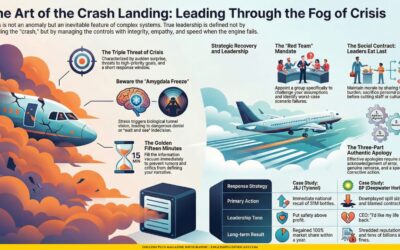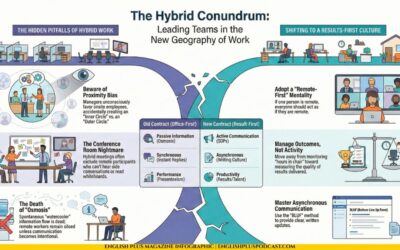In today’s fast-paced business world, making well-informed decisions is the cornerstone of success. Gone are the days of relying solely on intuition; the advent of data analytics has revolutionized how strategic decisions are made. But what exactly is the role of data analytics in strategic business decision-making? Let’s delve into this transformative tool and see how it can be effectively utilized in your business strategy.
Data Analytics: The Game Changer in Business Strategies
Data analytics refers to the process of examining, cleansing, transforming, and modeling data to discover useful information, inform conclusions, and support decision-making. In business, this means leveraging a myriad of data—from customer behavior to market trends—to guide strategic decisions.
- Understanding Consumer Behavior: Consider a retail company using data analytics to track customer purchases and preferences. By analyzing this data, they can tailor marketing strategies, optimize inventory, and even adjust pricing models to maximize profits and enhance customer satisfaction.
- Risk Management: Financial institutions often use data analytics for risk assessment. By analyzing market trends and historical data, they can predict market fluctuations and make informed investment decisions, mitigating financial risks.
- Operational Efficiency: Data analytics also plays a crucial role in streamlining operations. For instance, logistics companies utilize data to optimize routes, reduce fuel consumption, and improve delivery times, significantly boosting operational efficiency.
- Competitive Advantage: In today’s digital age, data is a valuable asset. Companies that effectively harness data analytics gain a competitive edge by identifying market gaps, predicting future trends, and staying ahead of the competition.
Integrating Data Analytics into Your Business Strategy
Integrating data analytics into your business strategy isn’t just a one-time effort; it’s an ongoing process that requires commitment and adaptation.
- Invest in the Right Tools and Talent: Employing the right data analytics tools and hiring skilled professionals is crucial. They are the architects who will build and interpret your data framework.
- Data-Driven Culture: Foster a culture where data-driven insights are valued. Encourage employees at all levels to base their decisions on data, not just gut feelings.
- Continuous Learning and Adaptation: The business landscape is ever-evolving, and so is data analytics. Stay abreast of the latest tools and techniques to keep your business agile and informed.
The Real-Life Impact of Data Analytics
Let’s look at some real-life examples where data analytics has made a significant impact:
- Netflix: By analyzing viewing patterns, Netflix not only recommends personalized content to users but also decides which original content to produce.
- Amazon: Uses data analytics to optimize its supply chain, predict customer buying patterns, and provide tailored product recommendations.
Taking Action: Harness the Power of Data Analytics
It’s clear that data analytics is no longer a luxury but a necessity in strategic business decision-making. Start by assessing your current data capabilities and identifying areas where analytics can bring the most value. Invest in the necessary tools and training, and commit to a culture that embraces data-driven decision-making.
Imagine the possibilities when decisions are not just based on hunches, but backed by solid data. The time to act is now—embrace data analytics and let it be the driving force behind your strategic business decisions. Your future self will thank you for the profound impact it will have on your
Why Should You Care?
Understanding the role of data analytics in strategic business decision-making is crucial in the modern business landscape. As data becomes increasingly integral to business operations, knowing how to leverage it for strategic planning, risk management, and gaining a competitive edge can significantly influence the success and sustainability of a business. Whether you’re a business owner, a manager, or an aspiring professional, grasping this concept equips you with the tools to make informed, data-driven decisions that can propel your organization forward.
Key Takeaways
- Data analytics is vital for informed decision-making in various business aspects, from consumer behavior to operational efficiency.
- Risk management is significantly enhanced through predictive analytics and market trend analysis.
- Operational efficiency gains from data analytics lead to cost savings and improved service delivery.
- Data-driven culture within an organization fosters better decision-making at all levels.
- Continuous learning and adaptation are key to staying relevant in the ever-evolving data analytics field.
Keywords
- Data Analytics: The process of analyzing raw data to find trends and answer questions.
- Strategic Planning: Long-term business planning based on thorough analysis and future forecasting.
- Business Intelligence: Technologies and practices for the collection, integration, analysis, and presentation of business information.
- Big DatLarge, complex data sets that require advanced tools to analyze.
- Data-Driven Decision Making: Making decisions based on data analysis rather than intuition.
- Risk Management: Identifying, assessing, and controlling threats to an organization’s capital and earnings.
- Operational Efficiency: The capability to deliver products or services in the most cost-effective manner without sacrificing quality.
- Competitive Advantage: A condition or circumstance that puts a company in a favorable or superior business position.
- Predictive Analytics: The use of data, statistical algorithms, and machine learning techniques to identify the likelihood of future outcomes.
- Supply Chain Optimization: The process of ensuring the efficient operation of the supply chain to meet customer demands.
Frequently Asked Questions
How can small businesses implement data analytics effectively?
Small businesses can start by using simple analytical tools available in common software like Excel, focusing on key metrics relevant to their business. As they grow, they can invest in more sophisticated analytics tools.
Is data analytics only useful for large corporations?
No, businesses of all sizes can benefit from data analytics. It helps in making informed decisions, understanding market trends, and improving customer experiences irrespective of the company’s size.
Myth Buster
Myth: Data analytics is too complicated and only for tech-savvy individuals.
Reality: While data analytics can be complex, there are various levels and tools available. With the right training and tools, anyone can learn to utilize basic data analytics for decision-making.
Myth: Data analytics will make human decision-makers obsolete.
Reality: Data analytics is a tool to aid human decision-makers, not replace them. It provides valuable insights but cannot replicate human judgment and creativity.
Let’s Talk
- How do you think data analytics will evolve in the next five years?
- Can data analytics be a game-changer for traditional industries like manufacturing or agriculture?
- How can businesses balance between data-driven decisions and intuition?
Share your thoughts and experiences in the comments below! Your insights might help others understand the impact and future potential of data analytics in business.










0 Comments